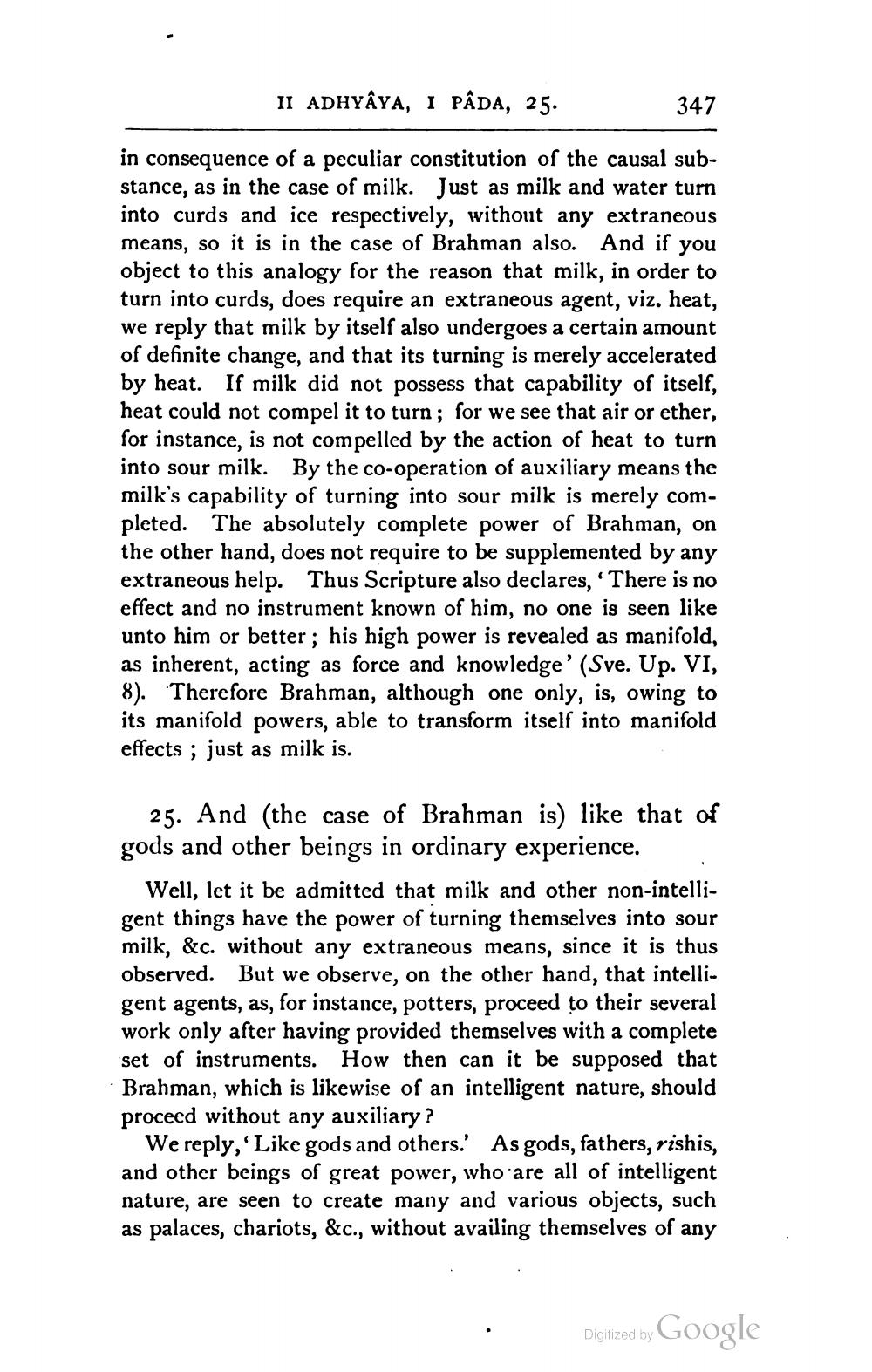________________
II ADHYAYA, I PÂDA, 25.
347
in consequence of a peculiar constitution of the causal substance, as in the case of milk. Just as milk and water turn into curds and ice respectively, without any extraneous means, so it is in the case of Brahman also. And if you object to this analogy for the reason that milk, in order to turn into curds, does require an extraneous agent, viz. heat, we reply that milk by itself also undergoes a certain amount of definite change, and that its turning is merely accelerated by heat. If milk did not possess that capability of itself, heat could not compel it to turn; for we see that air or ether, for instance, is not compelled by the action of heat to turn into sour milk. By the co-operation of auxiliary means the milk's capability of turning into sour milk is merely completed. The absolutely complete power of Brahman, on the other hand, does not require to be supplemented by any extraneous help. Thus Scripture also declares, 'There is no effect and no instrument known of him, no one is seen like unto him or better; his high power is revealed as manifold, as inherent, acting as force and knowledge' (Sve. Up. VI, 8). Therefore Brahman, although one only, is, owing to its manifold powers, able to transform itself into manifold effects; just as milk is.
25. And (the case of Brahman is) like that of gods and other beings in ordinary experience.
Well, let it be admitted that milk and other non-intelligent things have the power of turning themselves into sour milk, &c. without any extraneous means, since it is thus observed. But we observe, on the other hand, that intelligent agents, as, for instance, potters, proceed to their several work only after having provided themselves with a complete
set of instruments. How then can it be supposed that · Brahman, which is likewise of an intelligent nature, should proceed without any auxiliary?
We reply, 'Like gods and others.' Asgods, fathers, rishis, and other beings of great power, who are all of intelligent nature, are seen to create many and various objects, such as palaces, chariots, &c., without availing themselves of any
Digitized by Google




